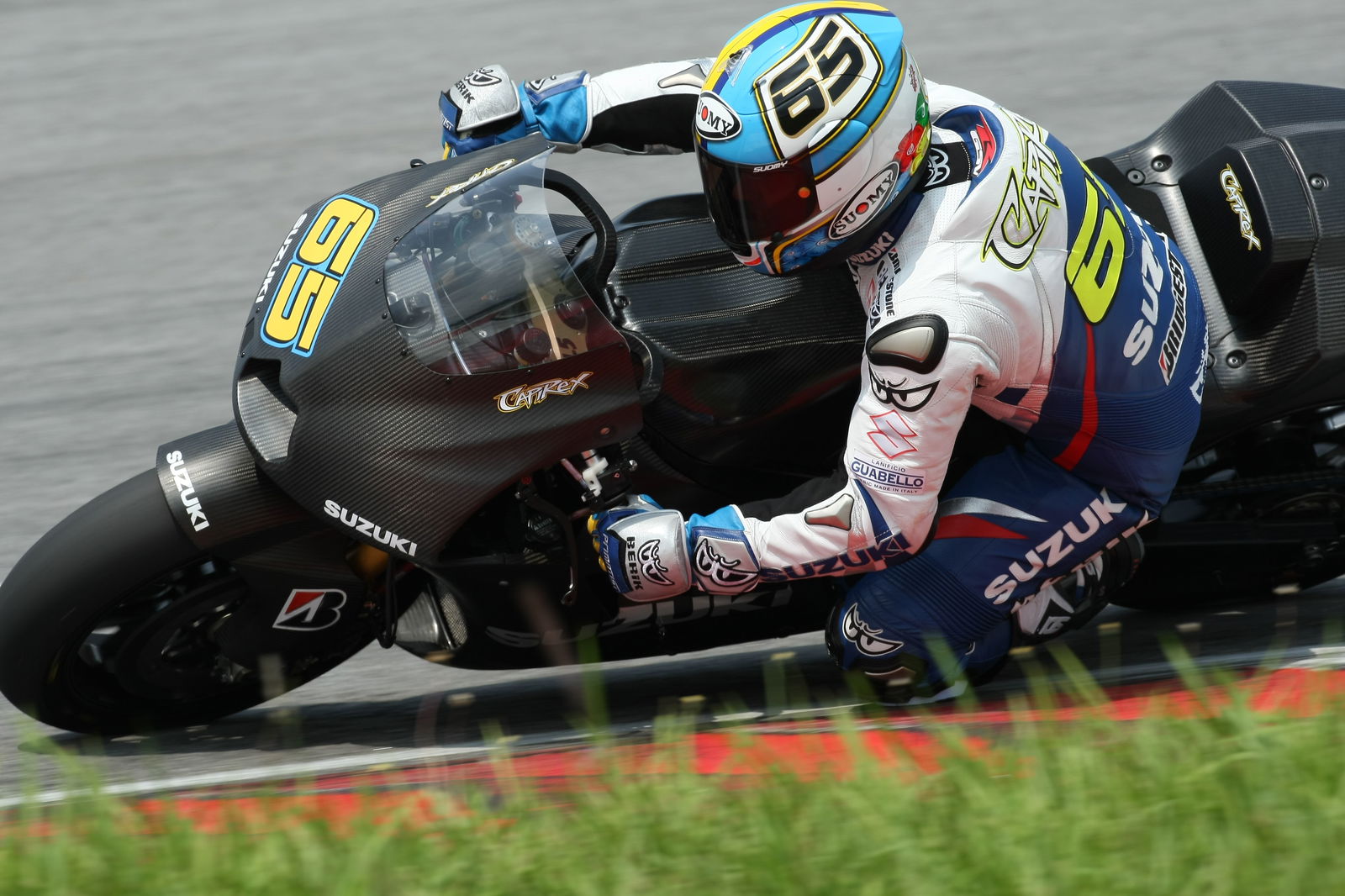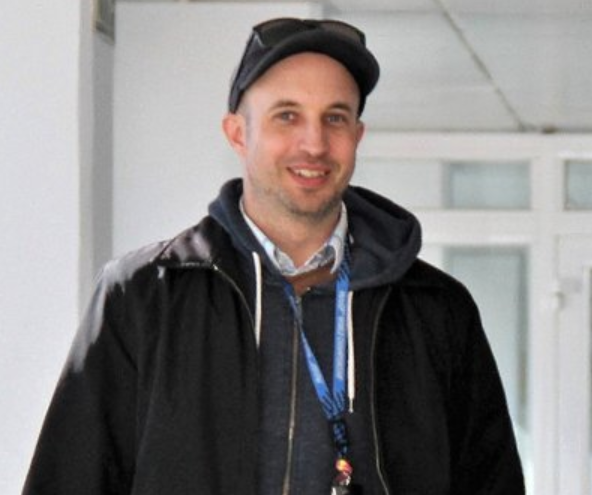MotoGP to change for the better?
Herve Poncharal believes the MotoGP rule changes currently being discussed in response to the global economic crisis are an exciting opportunity to make the sport better.
As well as being team manager of Tech 3 Yamaha, Poncharal is also president of the International Road Racing Teams Association (IRTA) which - along with Dorna, the FIM and MSMA - forms the Grand Prix Commission, which must approve all MotoGP rule changes.

Herve Poncharal believes the MotoGP rule changes currently being discussed in response to the global economic crisis are an exciting opportunity to make the sport better.
As well as being team manager of Tech 3 Yamaha, Poncharal is also president of the International Road Racing Teams Association (IRTA) which - along with Dorna, the FIM and MSMA - forms the Grand Prix Commission, which must approve all MotoGP rule changes.
Despite a gradual erosion of satellite and independent teams due to the escalating budgets required to race in MotoGP, the continued presence of the big five factories - Honda, Yamaha, Suzuki, Kawasaki and Ducati - meant that those whose agreement was required to induce change apparently saw little reason to do so.
Since the four-stroke class effectively replaced 500cc in 2002, the only significant technical changes have been the (expensive) switch from 990 to 800cc engines for 2007 and the (fortunately timed) introduction of a single tyre rule for 2009.
"There was a lot of politics involved before the single tyre decision was made, but now with the current economic situation, everybody is happy with it," said Poncharal, speaking exclusively to Crash.net.
But that wasn't enough to prevent Kawasaki - the least successful of the MotoGP manufacturers - breaking ranks and quitting the sport in early January, in response to the escalating global financial crisis. Pressure soon mounted on even the most successful factories to at least slash their MotoGP budgets, in the face of redundancies elsewhere in the companies, while satellite teams found the search for sponsorship harder than ever.
Poncharal confirmed that the financial crises had forced a fundamental shift in thinking by some inside the paddock, and is optimistic about what is now possible.
"At the moment the whole world is suffering, not only MotoGP. Everybody is very pessimistic. I think they are overly pessimistic. We will suffer in MotoGP, for sure, but let's try to take advantage of this opportunity because now everybody is more open to change," said Poncharal.
"I would never have thought three months ago that some of the people here would be so open to change.
"The basic feeling from FIM, MSMA, IRTA and Dorna is that we've got to move and we've got to do something.
"Without this crisis everybody was happy to see things stay the same year after year. And when you don't change anything maybe you end up getting a bit boring. Even the most attractive thing, when you see it everyday without any change, becomes ordinary.
"Maybe we need to change a lot of things. If we want to attract spectators, TV viewers, investors, we need to become even better. By that I mean cheaper, while producing a better show, with closer racing and more people at the front.
"So let's be proactive, let's be ambitious, let's exchange ideas - brainstorming. There will be some crazy ideas thrown up in the air that will never be possible to do, but out of everything good ideas will emerge," continued Poncharal.
"For me it is an exciting time. If you don't accept that you need to change all the time then you shouldn't be in the racing business. This is the aim of racing. When you ride a 125 you have a riding style, when you move to a 250 you have to adapt your style. Adaptation is a key word in life and even more in the racing business. So let's show that we can adapt to a new environment."
Fellow satellite team owner Lucio Cecchinello underlined the importance of the present situation and also reflected Poncharal's desire to use the cost cutting proposals to improve the show.
"For sure we are in a key moment," Cecchinello told Crash.net. "It is important for us to work together in order to change the direction of where we are heading; which is costs that are increasing every year for technical development.
"We need to think about somehow 'compressing' the technology in some areas, so the costs are not so high.
"But the new technical rules must not damage the spectacle of our wonderful sport. We must never forget that everything we do can not decrease, and should hopefully increase, the show for the spectators. This is the most important thing to remember."
Having been jolted into action, MotoGP's main priority is now to at least ensure the survival of the rest of the field for 2009, and deliver a good show, with more 'drastic' changes to follow. Should attempts to run the Kawasakis as a privateer entry fail, MotoGP will be reduced to just 17 riders.
"At the moment the aim is to try to have everybody in a position where we can go racing this season, produce a good show - with close racing - and that's it," said Poncharal. "It is impossible now to take all the measures [under discussion], because some of them are too drastic. We are already in the 2009 season; all the manufactures have already built the bikes, so we can only really change a few things about organisation for this year. Of course we are also thinking about what to do for 2010 and onwards and there will be for sure some more drastic decisions taken, but they will only be enforced in 2010.
"We have had a lot of meetings, the MSMA had a meeting the day before the Sepang test began, IRTA committee had a meeting at Sepang, Mr Alonso from Dorna was also at Sepang as well as an FIM representative," continued Poncharal. "Everybody met, everybody talked and everybody threw some proposals and ideas that will soon hopefully be in the rule book for 2009. At this stage they are just proposals so I don't want to be specific."
Whilst Poncharal was unwilling to speculate on the rule changes, one of the most likely is that first MotoGP free practice on a Friday morning will be cancelled for 2009 and replaced with an autograph session.
Cecchinello insisted that this alone would make a noticeable difference in terms of cost.
"We are positive about reducing practice because these bikes have huge maintenance costs," Cecchinello explained. "So if we do 20% less mileage this will help us to save a considerable amount of money and will not have a strong impact on the show for the public because the race will still be between 20-30 laps as before. But we just reduce practice, the number of practice, and also the tests."
The banning of spare bikes is another heavily-backed change, while other rules to extend engine life and possibly limit revs are also rumoured - along with possible restrictions on electronics and use of GPS - although it is unclear which will happen for 2009 and which for 2010.
Cecchinello hopes that the spare bike ban, which could both save money and free up machinery for new teams, will be enforced sooner rather than later.
"Allowing only one bike per rider will not affect the spectacle because the rider can only ride one bike on the track at a time anyway," said the Italian. "This would be very helpful to reduce costs because we can reduce personnel, transport, spare parts - a lot of things."
Lucio, himself a seven time 125GP race winner and the man who brought Casey Stoner to MotoGP, also gave an insight into the current budget required for a single-rider satellite team and the amount of cost reduction hoped for.
"For the factories it is very difficult to say what it costs to compete in MotoGP because there are huge R&D costs," said Cecchinello. "As a satellite team we have more fixed costs because we receive the bike from the factory, and then we have fixed costs for our programme of material updates.
"Let's say that our basic costs, only running costs - bikes, personal, tests and so on - could be between 6-8 million euros per year," he revealed. "But then you have to add the salary of the rider and that could be 10, 12 million euros - could be more - depending on who you have. So it is very expensive. Our target is to decrease the cost for our future participation by at least 20%."
Poncharal declared that it is up to the teams to take a lead in finding solutions to the current problems, rather than relying on commercial rights holder Dorna.
"We [the teams] know we are making the show and therefore have a responsibility to provide a good show," he said. "Dorna owning the championship is like if they bought a nice theater. If, when you bought a ticket and went inside, you thought 'nice food, nice seat, but there is nothing on the stage' then you would say reimburse me!
"All of us need to show we have ideas and can cope with the environment we are in. We don't want to be like the dinosaurs. We need to show flexibility in these hard times. We need to bend. If we are too rigid we will break," Herve warned.
An official announcement about the MotoGP rule changes is expected sometime this week. The first round of the 2009 season takes place in Qatar on April 12.


